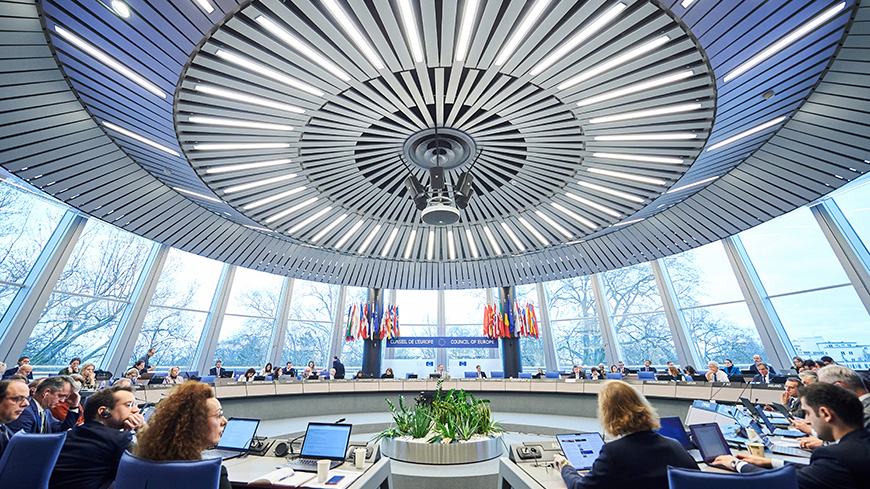The Council of Europe’s Committee of Ministers has published the case-by-case decisions taken during the Committee’s meeting from 12 to 14 March to supervise the implementation of judgments and decisions from the European Court of Human Rights.
The Committee of Ministers adopted 40 decisions concerning 21 states during the meeting, including Interim Resolutions (*) in cases concerning Lithuania and the Russian Federation.
Twenty-six Final Resolutions (**) were adopted by the Committee in respect of 51 judgments and decisions from the European Court, concerning 20 different states.
In addition, the Committee adopted an indicative list of cases to be examined during its next dedicated meeting on the execution of judgments, which will take place from 11 to 13 June 2024.
Ahead of this week’s meeting, the Committee held an informal discussion with representatives of Russian human rights NGOs on issues relevant to the execution of judgments. It was the third such exchange since the Russian Federation was excluded from the Council of Europe in March 2022.
Under Article 46 of the European Convention on Human Rights, judgments from the European Court of Human Rights are binding on the states concerned.
The Committee of Ministers oversees the execution of judgments on the basis of information provided by the national authorities concerned, civil society organisations, National Human Rights Institutions (NHRIs) and other interested parties.
Following its exclusion from the Council of Europe on 16 March 2022, the Russian Federation ceased to be a High Contracting Party to the European Convention on Human Rights on 16 September 2022.
The Committee of Ministers continues to supervise the execution of the judgments and friendly settlements concerned and the Russian Federation is obliged to implement them.
(*) An Interim Resolution is a form of decision adopted by the Committee of Ministers aimed at overcoming more complex situations requiring special attention.
(**) A Final Resolution is a Committee of Ministers decision whereby it decides to close the supervision of the execution of a judgment, considering that the respondent state has adopted all measures required in response to the violations found by the court.
Video on the supervision process
Country and thematic factsheets on the implementation of ECHR judgments


